We’ve been told by our guests that there is just something about checking-in to our rooms that helps them take a deep breath and relax! Maybe it’s the presence of the river, maybe its our thoughtfully designed rooms, or our attentive staff that help our guests feel taken care. Regardless, we embrace our “chill vibe” and we know we make the perfect fall retreat.
What goes better with a cozy fall getaway than great reading material? Whether you choose to enjoy a book by the fire up on our rooftop deck after a day of adventure, or you want hole up in your room all day with a cup of coffee and devour a new read, we’ve got you covered with our Fall reading list.
All of our picks are either written by Oregonian authors or take place in the PNW. Embrace the words that celebrate the chaos of nature, memories, experiences, trials, and the many different faces of this region.
“Nature and books belong to the eyes that see them.” ― Ralph Waldo Emerson
*Unless otherwise stated, the synopses and reviews listed here are brought to you via Goodreads.
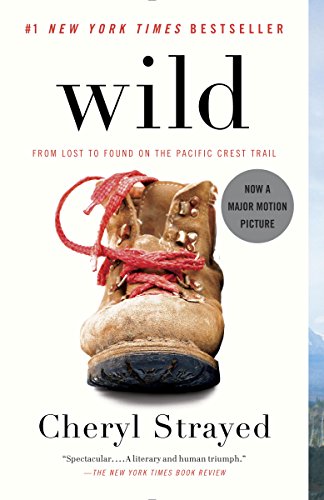
Wild: From Lost to Found on the Pacific Crest Trail, by Cheryl Strayed
“I was amazed that what I needed to survive could be carried on my back.”
― Cheryl Strayed, Wild: From Lost to Found on the Pacific Crest Trail
Synopsis: At twenty-two, Cheryl Strayed thought she had lost everything. In the wake of her mother’s death, her family scattered and her own marriage was soon destroyed. Four years later, with nothing more to lose, she made the most impulsive decision of her life. With no experience or training, driven only by blind will, she would hike more than a thousand miles of the Pacific Crest Trail from the Mojave Desert through California and Oregon to Washington State — and she would do it alone. Told with suspense and style, sparkling with warmth and humor, Wild powerfully captures the terrors and pleasures of one young woman forging ahead against all odds on a journey that maddened, strengthened, and ultimately healed her.
One review: “I enjoyed it from cover to cover. A longtime lover of the PCT, I already know about the trail from end to end. I was more interested in how the author used a rather spontaneous journey along the trail to help herself face demons and come to grips with her mother’s death. There are moments where her emotions are so clearly spelled out on the page, and then there are times where you have to read between the lines. But every step of the way you’re alongside her, watching as she learns to accept, to embrace, to let go, and how the PCT weaves through that.”
Genre: Memoir
“Books are the plane, and the train, and the road. They are the destination, and the journey. They are home.” ― Anna Quindlen, How Reading Changed My Life
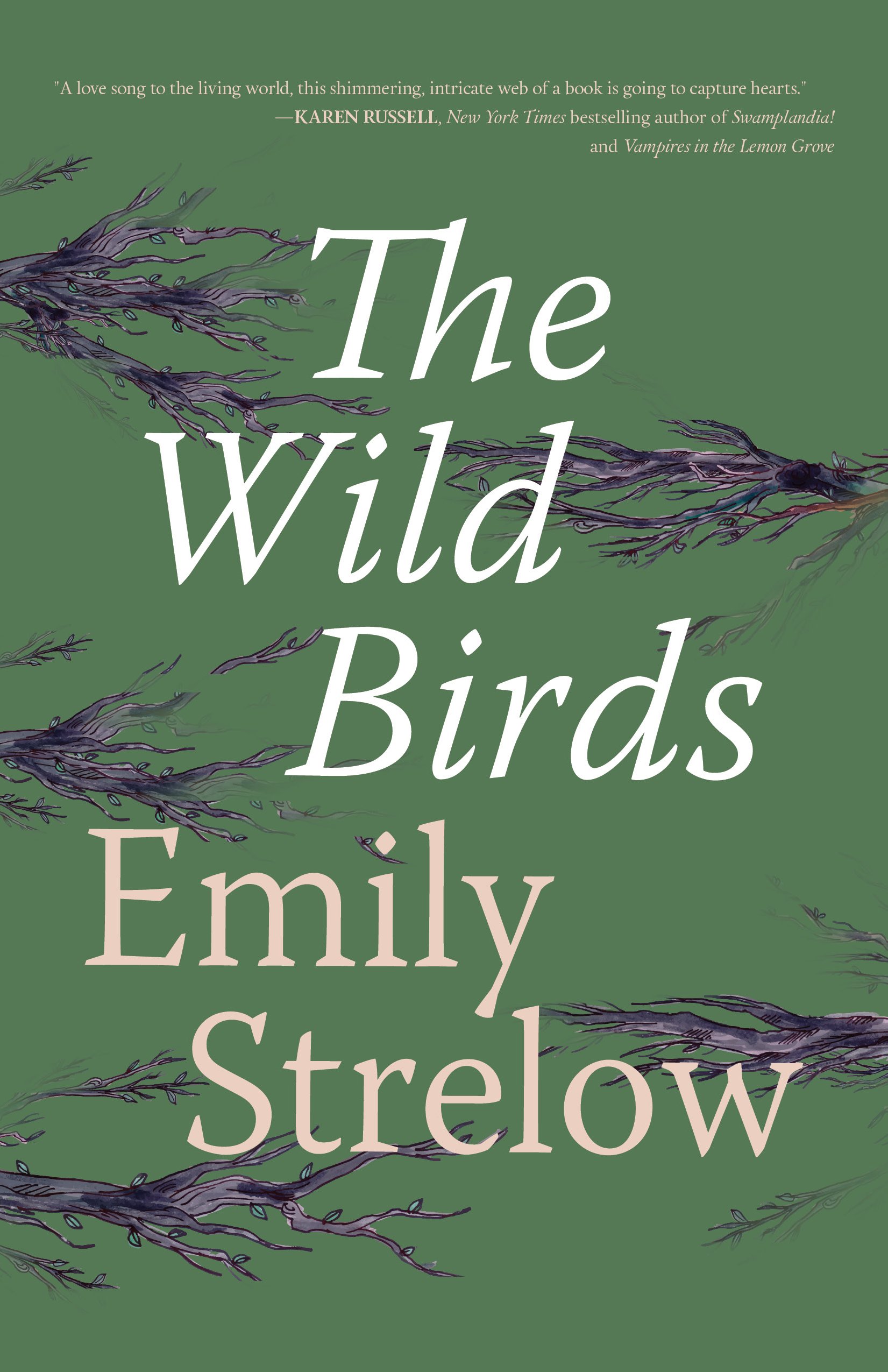
The Wild Birds, by Emily Strelow
“The Northern Harrier flew higher than usual above the fence line, catching an updraft off the hillside and letting the warm air loft her into the sky.” –Emily Strelow, The Wild Birds
Synopsis: Cast adrift in 1870s San Francisco after the death of her mother, Olive disguises herself as a boy and works as a lighthouse keeper’s assistant on the Farallon Islands to escape the dangers of a world unkind to young women.
One review: “Emily Strelow’s mesmerizing debut stitches together a sprawling saga of the feral Northwest across farmlands and deserts and generations: an American mosaic alive with birdsong and gun smoke, held together by a silver box of eggshells—a long-ago gift from a mother to her daughter. Written with grace, grit, and an acute knowledge of how the past insists upon itself, The Wild Birds is a radiant and human story about the shelters we find and make along our crooked paths home.”
Genre: Historical Fiction
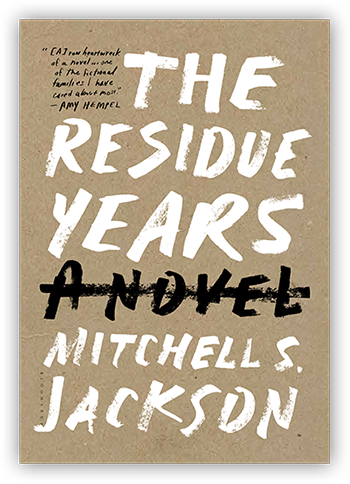
The Residue Years by Michael S. Jackson
“Some people are latecomers to themselves, but who we are will soon enough surround us.”
― Mitchell S. Jackson, The Residue Years
Synopsis: The Residue Years switches between the perspectives of a young man, Champ, and his mother, Grace. Grace is just out of a drug treatment program, trying to stay clean and get her kids back. Champ is trying to do right by his mom and younger brothers, and dreams of reclaiming the only home he and his family have ever shared. But selling crack is the only sure way he knows to achieve his dream. In this world of few options and little opportunity, where love is your strength and your weakness, this family fights for family and against what tears one apart.
One review (Note, this particular review is via Roxanne Gay at the NY Times): “Told in chapters that alternate between Champ and Grace, “The Residue Years” describes a black family in Portland trying hard to remain a family… There is warmth and wit, and a hard-won wisdom about the intersection of race and poverty in America. […] The beating heart of this novel is a journey toward a home that is always just beyond grasp no matter how fiercely Grace and Champ reach. Their story is as moving as it is unbearable.”
Genre: Autobiography
“Reading is escape, and the opposite of escape; it’s a way to make contact with reality after a day of making things up, and it’s a way of making contact with someone else’s imagination after a day that’s all too real.” ― Nora Ephron
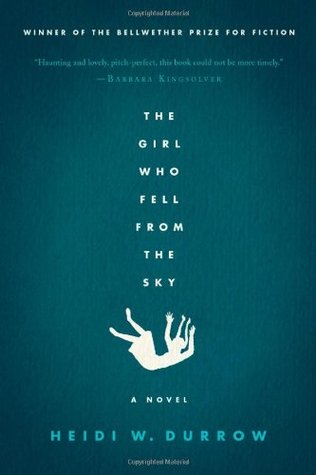
The Girl Who Fell From the Sky by Heidi W. Durrow
“The bottle is where everything sad or mean or confusing can go. And the blues–it’s like that bottle. But in the bottle there’s a seed that you let grow. Even in the bottle it can grow big and green. It’s full of all those feelings that are in there, but beautiful and growing too.”
― Heidi W. Durrow, The Girl Who Fell from the Sky
Synopsis: This debut novel tells the story of Rachel, the daughter of a Danish mother and a black G.I. who becomes the sole survivor of a family tragedy. With her strict African American grandmother as her new guardian, Rachel moves to a mostly black community, where her light brown skin, blue eyes, and beauty bring mixed attention her way. Growing up in the 1980s, she learns to swallow her overwhelming grief and confronts her identity as a biracial young woman in a world that wants to see her as either black or white.
One review: “It’s easy to see why there’s so much fuss over this novel. Much as Nella Larsen did in her exemplary novel Passing and the novel Quicksand, Heidi Durrow explores both interracial and intraracial racism in a compelling and unique way. Throughout the novel, there are several nods to Larsen (the mother named Nella, the protagonist who is half black and half Danish, the exploration of racial tensions in America when compared with the more colorblind European societies, the epigraph taken from Passing). However, while it’s clear that Durrow was inspired by Larsen, there’s never any doubt that this novel is Durrow’s own.”
Genre: Realistic Fiction (set in the 1980’s)
“A word after a word after a word is power.” ― Margaret Atwood
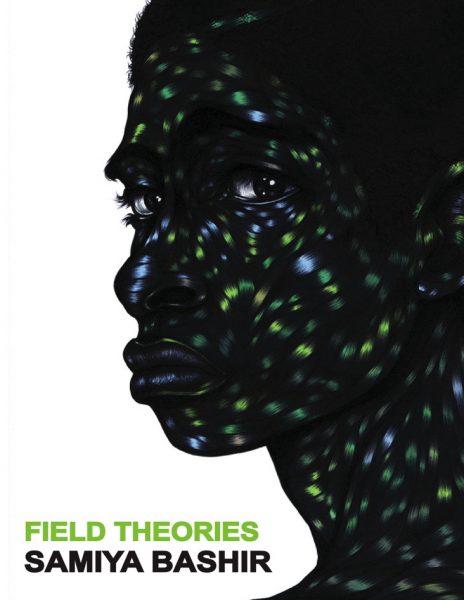
Field Theories by Samiya Bashir
“The sun went down forever so
What else made sense but to
climb one another hand over
Hand and cleave to whoever was
left and near enough and would?”
-Samiya Bashir, Field Theories
Synopsis: A collection of poems, Field Theories winds its way through quantum mechanics, chicken wings, Newports, and love, melding blackbody theory (idealized perfect absorption vs. the white body’s idealized reflection) with live Black bodies. Woven through experimental lyrics is a heroic crown of sonnets that wonders about love, intent, identity, hybridity, and how we embody these interstices. These poems span lyric, narrative, dramatic, and multi-media experience, engaging their containers while pushing against their constraints. Albert Murray said, “The second law of thermodynamics ain’t nothin but the blues. So what is the blue of how we treat each other, ourselves, and the world, and of how the world treats us?”
One Review: “To read Samiya Bashir’s poetry is to be pulled up by a force so intense and magnetic as to constitute a new field of action: dark matter and radiation, witness and redaction, and the pendulum of time and history, swinging, swinging. I am reminded of Melvin Tolson’s description of the night on which that legendary steel-driver John Henry was born: ‘an ax of lightning split the sky.’ This book splits the sky right open, swinging like a melody, swinging like a boxer, swinging on each elemental and freighted word to beat the devil.”
Genre: Poetry
“No book is really worth reading at the age of ten which is not equally – and often far more – worth reading at the age of fifty and beyond.” ― C.S. Lewis
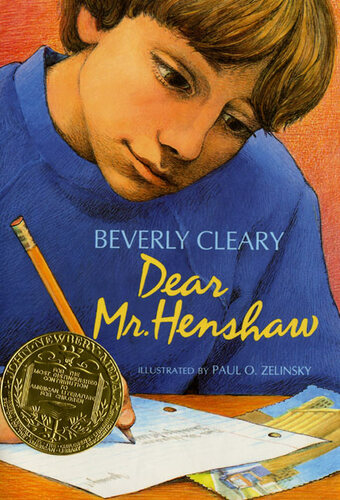
Dear Mr. Henshaw by Beverly Cleary
“I am mad at Mom for divorcing Dad. As she says, it takes two people to get a divorce so I am mad at two people. I wish Bandit was here to keep me company. Bandit and I didn’t get a divorce. They did.” – Beverly Cleary, Dear Mr. Henshaw
Synopsis: Second grader Leigh Botts adores a book about dog training by author Mr. Boyd Henshaw. To fulfill a school assignment, Leigh painstakingly writes to Mr. Henshaw and tells him how much he “licked” his book. And he keeps writing to him. At first, Leigh resents the flippant replies he gets from his idol, but gradually he answers Mr. Henshaw’s questions, which are really only to encourage Leigh to put pencil to paper. Four years later, Leigh is in the sixth grade and is still writing to Mr. Henshaw, and he never imagines that he’d reveal so much of himself and his life to the author.
One review: “Rereading this book, I was struck with how Cleary manages to convey her narrator’s complex feelings in the limited vocabulary and understated style of Leigh Botts, a lonely and isolated young boy. Leigh faces several problems in the narrative–his lunch is stolen, he doesn’t understand his parents’ divorce, he resents a “pizza boy” whose mother Leigh’s father seems to be dating–but none are neatly solved; Cleary refuses to resolve them conclusively and instead shows Leigh struggling to address them as best as he can, reflecting Leigh’s use of his writing to understand and, perhaps, learn from the experiences.”
Genre: Middle Grade Children’s Lit
“The best moments in reading are when you come across something – a thought, a feeling, a way of looking at things – which you had thought special and particular to you. Now here it is, set down by someone else, a person you have never met, someone even who is long dead. And it is as if a hand has come out and taken yours.”
― Alan Bennett, The History Boys
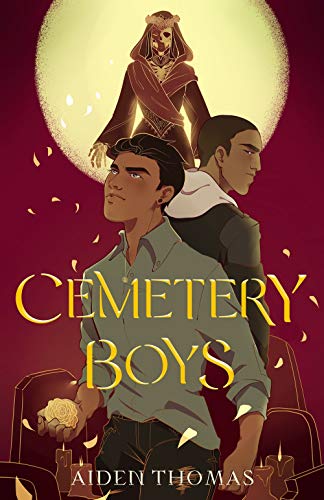
Cemetery Boys by Aiden Thomas
“There’s no way y’all have been around for thousands of years without there being one person not fitting into the ‘men are this, women are that’ bullshit.” Julian sounded so convinced, so sure. His obsidian eyes locked onto Yadriel’s. “Maybe they hid it, or ran away, or I dunno, something else, but there’s no way you’re the first, Yads.” ― Aiden Thomas, Cemetery Boys
Synopsis: Yadriel has summoned a ghost, and now he can’t get rid of him. When his traditional Latinx family has problems accepting his gender, Yadriel becomes determined to prove himself a real brujo. With the help of his cousin and best friend Maritza, he performs the ritual himself, and then sets out to find the ghost of his murdered cousin and set it free.
One review: “I knew from the very first few pages of Cemetery Boys that I was going to love it so dearly. Aiden Thomas lured me into their imaginative and vibrant narrative with an enchanting mix of mystery and magic, then hooked me on their winning characters. The sense of fall was immediate then, the swiftness and depth of it. I wanted to hold time like a breath in my chest, and never stop reading. When I turned the last page, I felt like something inside of me had cracked open, like a room with the windows all thrown wide open, eager to let in the gleaming sunlight, the fresh air, and the spring-morning warmth. That heady feeling of weightlessness, as though something heavy had been perched on my shoulders but had finally flown away.”
Genre: Queer Young Adult Fiction
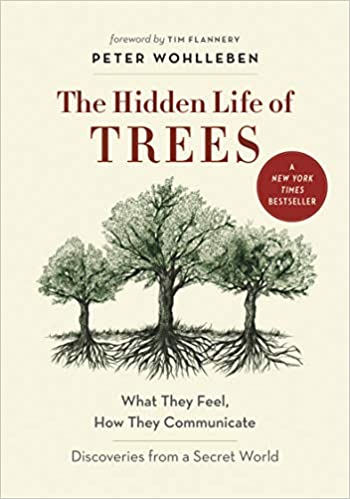
The Hidden Life of Trees: What they feel, how they communicate- discoveries from a secret world by Peter Wohlleben
(***Okay, okay, okay, so this isn’t a local author and doesn’t take place in Oregon. But how can we love the PNW and nt want to learn about the amazing communication of trees?)
“We shouldn’t be concerned about trees purely for material reasons, we should also care about them because of the little puzzles and wonders they present us with. Under the canopy of the trees, daily dramas and moving love stories are played out. Here is the last remaining piece of Nature, right on our doorstep, where adventures are to be experienced and secrets discovered. And who knows, perhaps one day the language of trees will eventually be deciphered, giving us the raw material for further amazing stories. Until then, when you take your next walk in the forest, give free rein to your imagination-in many cases, what you imagine is not so far removed from reality, after all!”
–Peter Wohlleben, The Hidden Life of Trees
Synopsis: In The Hidden Life of Trees, Peter Wohlleben shares his deep love of woods and forests and explains the amazing processes of life, death, and regeneration he has observed in the woodland and the amazing scientific processes behind the wonders of which we are blissfully unaware. Much like human families, tree parents live together with their children, communicate with them, and support them as they grow, sharing nutrients with those who are sick or struggling and creating an ecosystem that mitigates the impact of extremes of heat and cold for the whole group. As a result of such interactions, trees in a family or community are protected and can live to be very old. In contrast, solitary trees, like street kids, have a tough time of it and in most cases die much earlier than those in a group. Drawing on groundbreaking new discoveries, Wohlleben presents the science behind the secret and previously unknown life of trees and their communication abilities; he describes how these discoveries have informed his own practices in the forest around him. As he says, a happy forest is a healthy forest, and he believes that eco-friendly practices not only are economically sustainable but also benefit the health of our planet and the mental and physical health of all who live on Earth.
One review: “A dreamy bubble that is now duly burst. One of the many things that Peter Wohlleben’s book has taught me is that a lot of phenomena escape my flittering attention as I skip and skedaddle through life. The trees are such a phenomenon. A majestic backdrop to many of my sweetest memories, yet never given the notice they were due. Our world is full of magical places. These can be found on the ocean’s vigorous waves, on a tranquil mountaintop or in a lover’s embrace. One other such place is under the canopy of trees. In their mystic shade of earthy green some people reach enlightenment, others find fundamental scientific truths and many discover peace. Troubled heads are cleared as they rest on ancient trunks and laden hearts are lightened by the sound of rustling leaves. […] Wohlleben’s book The Hidden Life of Trees worked the same way for me as the focus changer does for my camera. This book inaugurated a new sensibility that feels purposeful and asks to be deeply understood. The way I looked at the world and the way I looked at my memories had been tainted by a particular and exclusive interest for human affairs. Wohlleben put the splendor of trees in a sharp and welcome focus, opening my eyes as they welled up with remorseful tears. My perspective changed, and now an everyday city scenery has become a concrete concentration camp for trees forced to live in isolation, cut off from their potential and cut down to serve city-scaping needs.”
Genre: Science + Nature Non-fiction
So grab a book (or two) and head to the Willamette Valley! The Independence’s rooms and riverfront location, make the perfect backdrop for getting lost in a good story.





